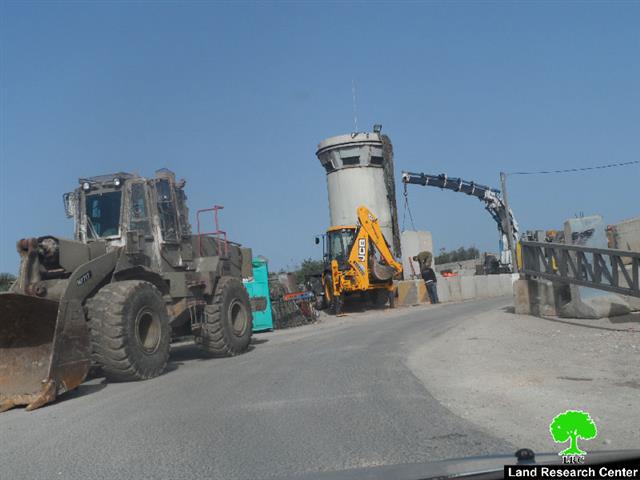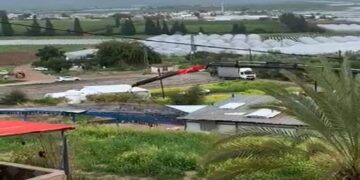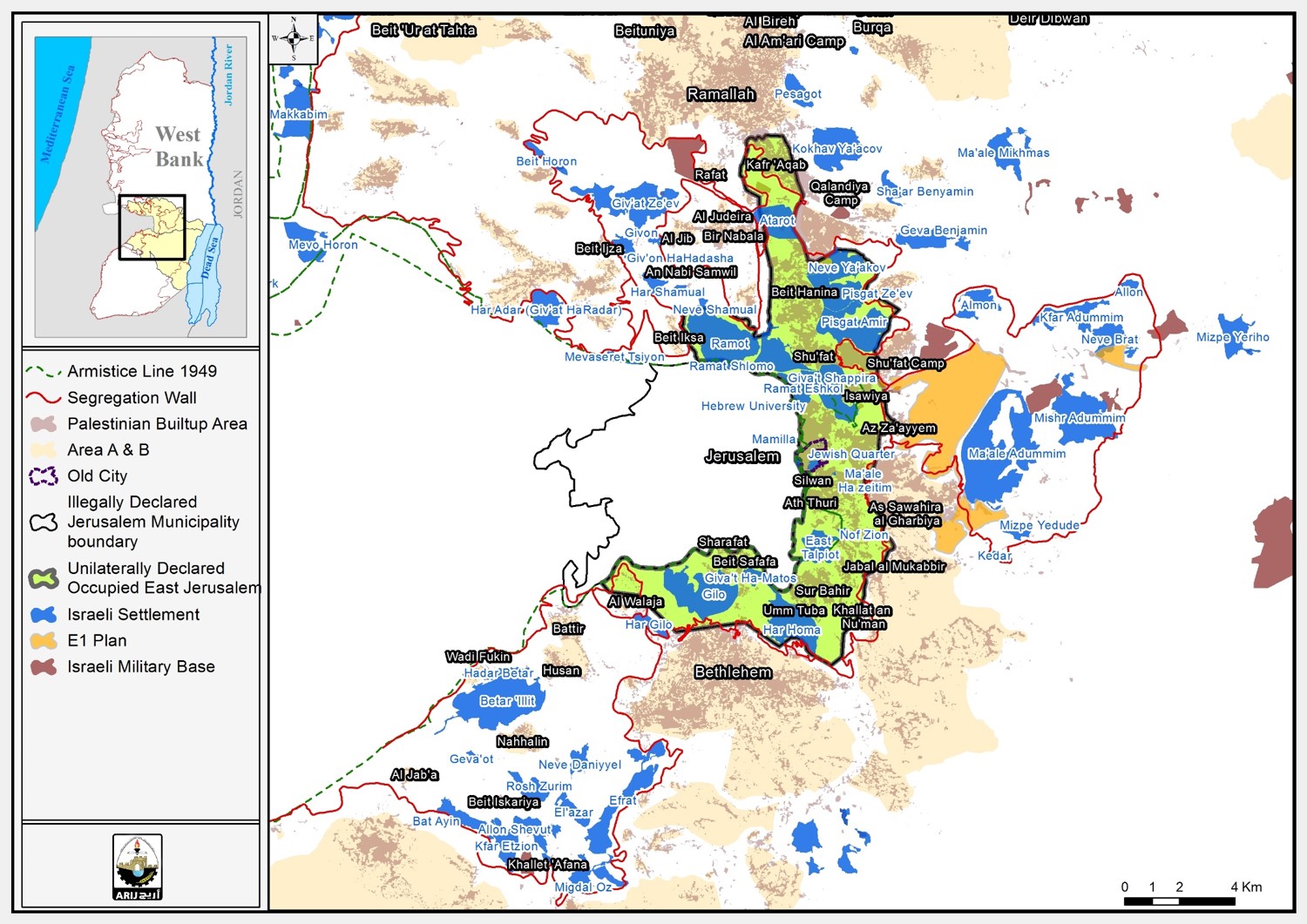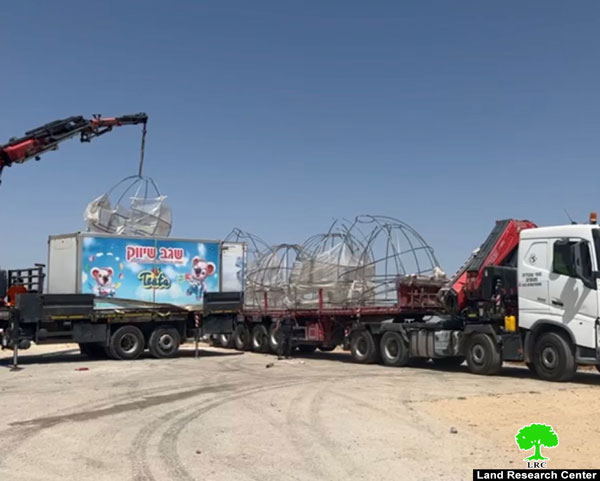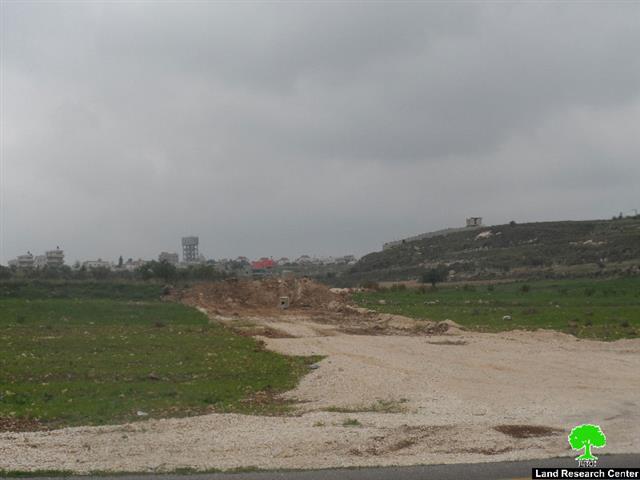Violation: Plowing lands in preparation for setting up a new control point
Date: 17/03/2014
Location: Za'tara- Nablus governorate
Perpetrators: The Israeli occupation army
Details:
On March 17, 2014, the Israeli occupation embarked on settling a piece of land located near the Tapuah checkpoint that works as a barrier between the north of the West Bank and the middle. The land ravaging comes in preparation for constructing a new watchtower that serves the Israeli occupation's interests only as it is planned to be at the intersection between roads no. 60 and no. 505 adjacent to Za'tara checkpoint.
The reason behind the installment of the military tower is to enhance the status of the Tapuah checkpoint and impose more movement restrictions on Palestinians traveling from and to the north and middle of the West Bank.
About Tapuah Checkpoint:
Built during the second intifada in 2002, the Tapuah checkpoint , as other military barriers, contributed and still does in strangling Palestinians and obstructing their access to and from the north West Bank cities and Ramallah.
Tapuah is a fixed checkpoint where Israeli soldiers are always present, scrutinizing vehicles and citizens. There is an observation tower and a park for inspecting cars. There is also a place for a rest stop for colonists travelling to the north of West Bank.
However, Tapuah is different from other checkpoints in that the soldiers use police dogs in searching civilian residents in an attempt to humiliate them; an action considered a grave breach to human rights and international laws.
Picture 1: The checkpoint of Tapuah
According to the GIS department in LRC that relied on field research done by Monitoring Israeli Violations Department, the number of checkpoints (excluding the checkpoints in the old city of Hebron and the gates of the Apartheid Wall) reached up 319 at the end of 2013.
LRC considers the installment of checkpoints a blatant violation of the international law and conventions.
Below are some international covenants regarding that:
Article 3 of the Universal Declaration of Human Rights: “Everyone has the right to life, liberty and security of person”.
Article 5: “No one shall be subjected to torture or to cruel, inhuman or degrading treatment or punishment”.
Article 9: “No one shall be subjected to arbitrary arrest, detention or exile”.
Article 13:
Everyone has the right to freedom of movement and residence within the borders of each state.
Everyone has the right to leave any country, including his own, and to return to his country.
Article 7 of the International Covenant on Civil and Political Rights: “ No one shall be subjected to torture or to cruel, inhuman or degrading treatment or punishment. In particular, no one shall be subjected without his free consent to medical or scientific
experimentation. “
Article 9:
Everyone has the right to liberty and security of person. No one shall be subjected to arbitrary arrest or detention. No one shall be deprived of his liberty except on such grounds and in accordance with such procedure as are established by law.
Anyone who is arrested shall be informed, at the time of arrest, of the reasons for his arrest and shall be promptly informed of any charges against him.
Anyone arrested or detained on a criminal charge shall be brought promptly before a judge or other officer authorized by law to exercise judicial power and shall be entitled to trial within a reasonable time or to release. It shall not be the general rule that persons awaiting trial shall be detained in custody, but release may be subject to guarantees to appear for trial, at any other stage of the judicial proceedings, and, should occasion arise, for execution of the judgment.
Anyone who is deprived of his liberty by arrest or detention shall be entitled to take proceedings before a court, in order that court may decide without delay on the lawfulness of his detention and order his release if the detention is not lawful.
Anyone who has been the victim of unlawful arrest or detention shall have an enforceable right to compensation.
Prepared by
The Land Research Center
LRC


